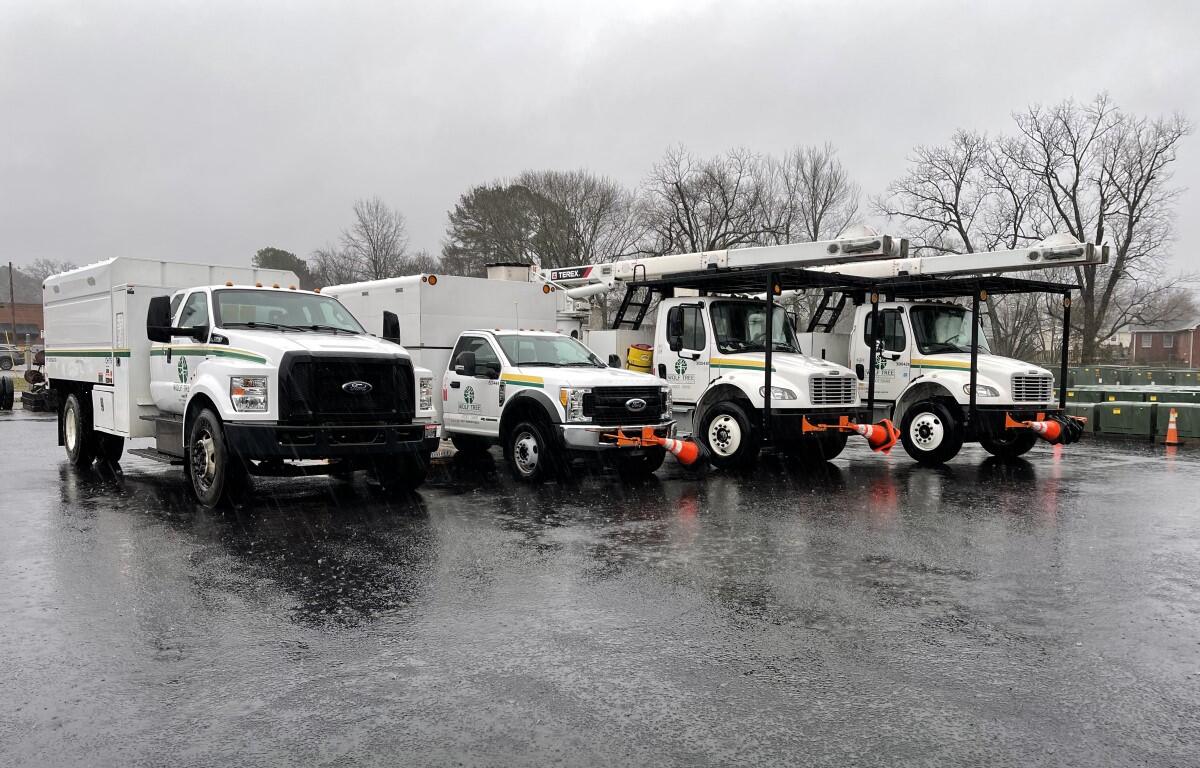CLARKSVILLE, TN (CLARKSVILLE NOW) – Utility crews in Clarksville and Montgomery County are preparing for power outages from the ice storm, and residents are urged to do the same.
“Cumberland Electric Membership Corp. is closely monitoring the winter storm that is expected to impact our service area today and preparing crews and equipment to ensure that we are ready to respond quickly to any power outages that may occur as a result of this weather system,” said spokeswoman Julie Wallace in a news release.
“We are shifting crews and equipment from our eastern district offices to our western district offices where the ice accumulation is expected to be the greatest,” she said.
Residents in Montgomery County are urged to be ready in case of an extended outage.
“Damage caused by ice can be widespread and create extended power outages. When ice builds up, the added weight can break trees, poles and wires leading to power outages.”
Montgomery County is expected to get up to .4 inches of ice accumulation. CEMC’s system is designed to handle up to .25 inches of ice.
“That does not mean a line will fail if it receives more than that, but it is rated to handle a quarter inch,” Wallace said.
Reporting an outage
CEMC members are advised to report outages by using the SmartHub mobile app calling or by calling 1-800-987-2362.
CEMC wants to remind the community to stay away from downed wires or damaged electric equipment and report these situations immediately by calling 911 and CEMC at 1-800-987-2362.
CDE Lightband customers in Clarksville should report outages by calling 931-648-8151 or report them online at the CDE Lightband website.
Power outage tips
These tips from ready.gov can help your family be safe and better prepared for winter storms:
- Keep freezers and refrigerators closed.
- Only use generators outdoors and away from windows.
- Do not use a gas stove to heat your home.
- Disconnect appliances and electronics to avoid damage from electrical surges.
- Have alternate plans for refrigerating medicines or using power-dependent medical devices.
- If safe, go to an alternate location for heat or cooling.
- Check on neighbors.
How to prepare for an outage
- Take an inventory of the items you need that rely on electricity.
- Talk to your medical provider about medical devices powered by electricity
- Find out how long refrigeration-dependent medication can be stored at higher temperatures and get guidance for any medications that are critical for life.
- Plan for batteries and other alternatives.
- Sign up for local alerts and warning systems. Monitor weather reports.
- Install carbon monoxide detectors with battery backup in central locations on every level of your home.
- Determine whether your home phone will work in a power outage and how long battery backup will last.
- Review the supplies that are available in case of a power outage. Have flashlights with extra batteries for every household member. Have enough nonperishable food and water.
- Use a thermometer in the refrigerator and freezer so that you can know the temperature when the power is restored. Throw out food if the temperature is 40 degrees or higher.
- Keep mobile phones and other electric equipment charged and gas tanks full.
During an outage
- Keep freezers and refrigerators closed. The refrigerator will keep food cold for about four hours. A full freezer will keep the temperature for about 48 hours. Use coolers with ice if necessary. Monitor temperatures with a thermometer.
- Maintain food supplies that do not require refrigeration.
- Avoid carbon monoxide poisoning. Generators, camp stoves, or charcoal grills should always be used outdoors and at least 20 feet away from windows. Never use a gas stovetop or oven to heat your home.
- Check on your neighbors. Older adults and young children are especially vulnerable to extreme temperatures.
- Go to a community location with power if heat or cold is extreme.
- Turn off or disconnect appliances, equipment, or electronics. Power may return with momentary “surges” or “spikes” that can cause damage.
After an outage
- Throw away any food that has been exposed to temperatures 40 degrees or higher for two hours or more, or that has an unusual odor, color or texture. When in doubt, throw it out.
- If the power is out for more than a day, discard any medication that should be refrigerated, unless the drug’s label says otherwise. If a life depends on the refrigerated drugs, consult a doctor or pharmacist and use medicine only until a new supply is available.


